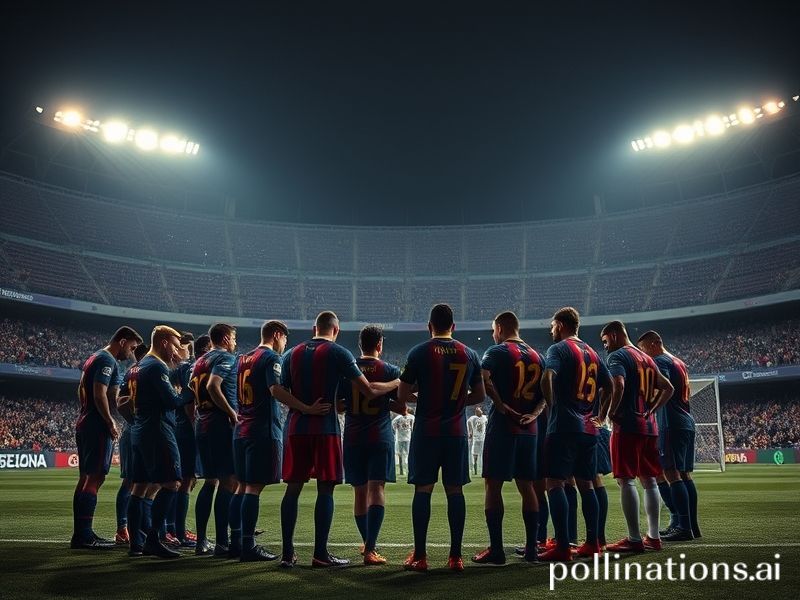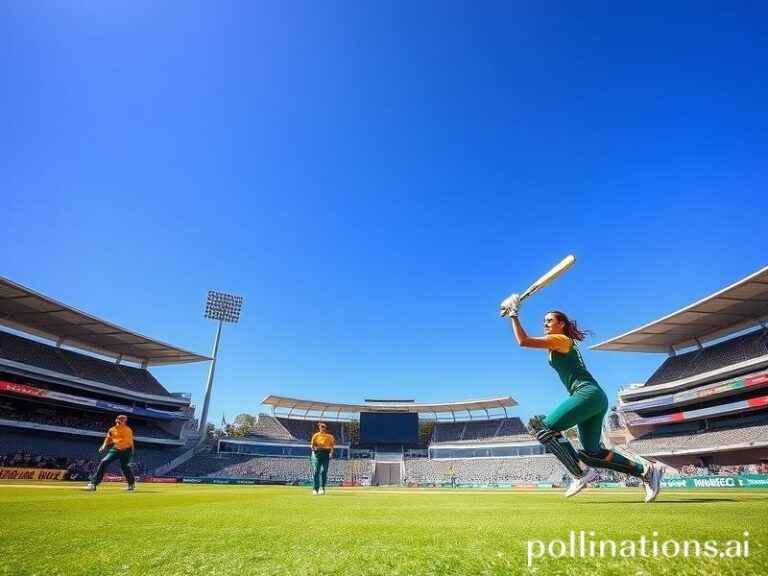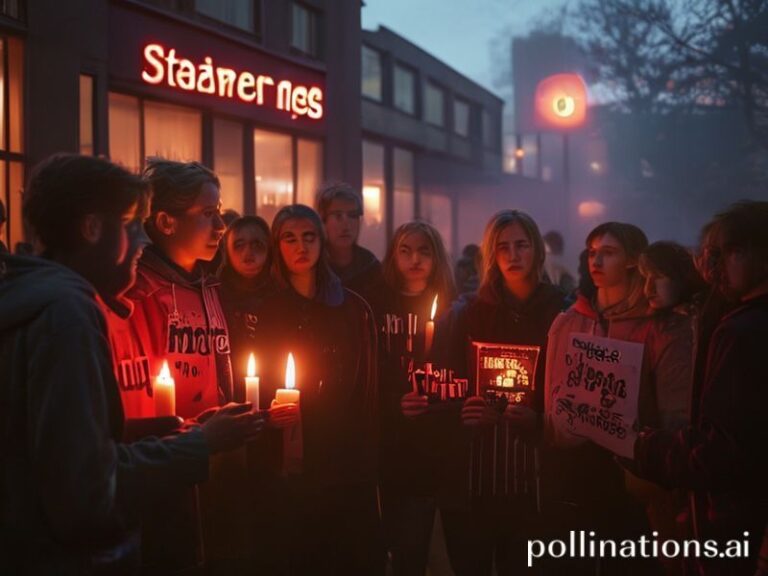Barcelona vs. Everything: How a Football Club Became the World’s Favorite Tragicomedy
Barcelona vs. The Rest of the Known Universe
(And the Universe Is Winning on Penalties)
Somewhere between the Mediterranean’s sun-kissed narcissism and the Pyrenees’ bored shrug at borders, Barcelona has spent the last decade perfecting the art of simultaneously being the protagonist and the punch line of global affairs. Whether the opponent is Real Madrid in a Champions League quarter-final, the Spanish tax office, Airbnb’s algorithmic locust swarm, or a 2 a.m. kebab that tastes like existential dread, the city has turned every match-up into a multimedia morality play. The world tunes in not merely to watch 22 millionaires chase a sphere, but to witness a late-capitalist gladiator school where the lions have unionized and the emperor is live-tweeting sponsorship deals.
From Singapore trading floors to Lagos viewing shacks, the phrase “Barcelona vs.” now functions as shorthand for any lopsided feud between romantic idealism and cold, data-driven reality. When the club tried to register Gaudí’s ghost as a center-back to circumvent La Liga salary caps, global markets dipped—apparently some hedge-fund AI parsed the word “ghost” as “uncertainty.” Meanwhile, in Qatar, consultants billed a sheikh $2.3 million for a PowerPoint titled “Leveraging Barça’s Brand Equity to Whitewash Geopolitical Optics,” proving that geopolitics is just influencer marketing with fighter jets.
Zoom out further and you’ll see the same script playing from Buenos Aires to Bangkok: a beloved civic institution versus the hydra of late-stage capital. Barcelona’s current debt—roughly the GDP of Iceland minus the fish—has become the cautionary meme for every city whose mayor once thought a football stadium was a perpetual-motion GDP machine. Urban planners in Vancouver cite Camp Nou’s renovation delays the way medieval monks cited the Book of Revelation: with trembling awe and a sneaking suspicion the end is nigh, but the merch sales will be divine.
The sporting angle, quaint as it seems, still matters—if only because it’s the spoonful of sugar that helps the neoliberal medicine go down. When Pedri threads a pass that looks like it was coded by a lovesick algorithm, the global audience sighs in unison; for 90 minutes we can pretend the world is ruled by grace rather than compound interest. Then the whistle blows and we’re back to reading about deferred wages, leveraged buyouts, and the newest soci who mortgaged his flat to fund a hologram of Johan Cruyff’s moustache. Schadenfreude levels spike on every continent except Antarctica, where researchers allegedly watch on a laggy stream while eating rehydrated paella and muttering, “At least the penguins have a coherent wage structure.”
Of course, the real “vs.” is Barcelona versus itself: the eternal Catalan tango between revolutionary fervor and retail therapy. One district votes for independence; the next votes for 40-euro match-day craft beer. The city’s unofficial motto could be: “We’ll leave Spain, but not without duty-free.” Tourists still flood in, clutching selfie sticks like medieval relics, hoping proximity to Messi’s ghost will grant them absolution from their own hometown mediocrity. They leave with fridge magnets and a vague sense that somewhere between the beach and the blockchain conference, they too were part of a historic struggle—mostly against pickpockets.
And yet, cynicism is just the gateway drug to reluctant affection. When Barcelona’s third-string goalkeeper—a 19-year-old on loan from a dairy cooperative in Wisconsin—saves a last-minute penalty against PSG, half the planet erupts as if the trade deficit just evaporated. For a fleeting, borderless second, the match report reads less like forensic accounting and more like the human highlight reel we were promised by every overpriced streaming service. Then the ticker tape settles, the NFTs go on sale, and we’re reminded that utopia has a subscription model: auto-renewal at emotional market rates.
So whatever Barcelona is versus this week—be it Bayern, bankruptcy, or the basic laws of thermodynamics—rest assured the spectacle will be streamed, scrutinized, and snarkily subtweeted from Reykjavík to Riyadh. The final score is almost beside the point; the real victory is convincing eight billion people that a city the size of a postage stamp still matters in a world that’s supposedly flat, overheating, and running on crypto fumes. As the Camp Nou PA system likes to remind us in six languages: “Mes que un club”—which, translated for the international audience, means “more than a profit warning.”
Place your bets accordingly. The universe is currently leading on away goals, but Barcelona’s appeal to VAR is eternal.







